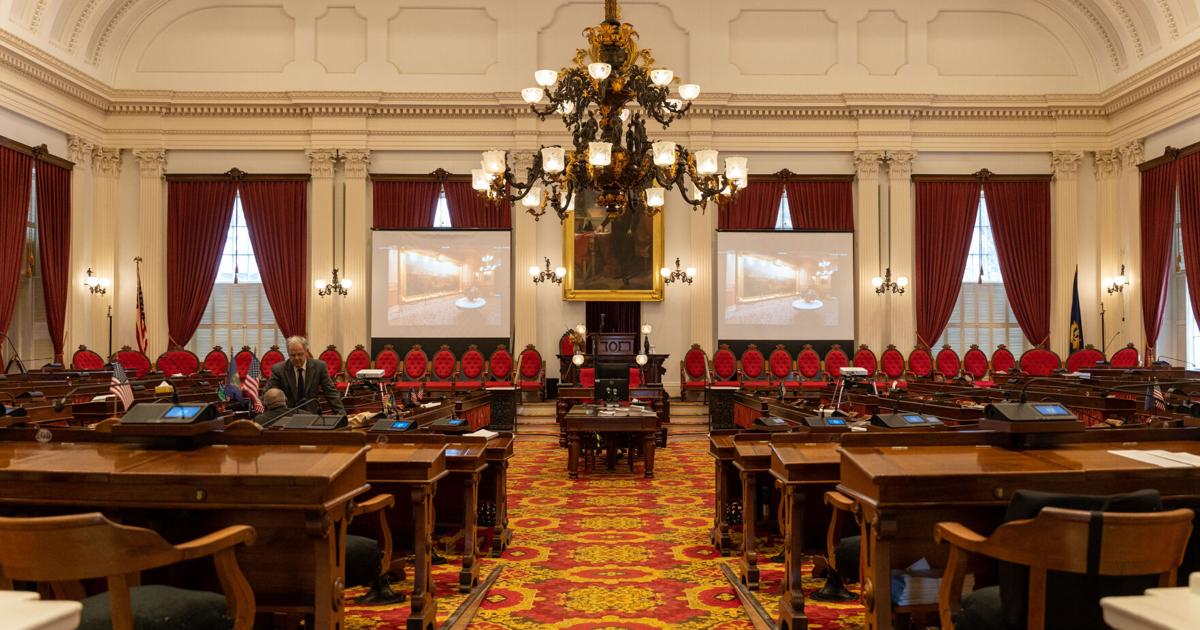FRANKLIN COUNTY — This week, the Vermont House passed H.887, or the Yield Bill. It’s routine legislation, but this year, it’s anything but ordinary.
The legislature passes such a bill annually to set the education tax rate for the upcoming fiscal year. But now, if H.887 passes the senate and gets the governor’s approval, rates will increase 15 or 18% on July 1 depending on your property type.
State officials argue that much of an increase is needed because education spending as a whole in Vermont is up an estimated 18%. Why? Major cost variables include overdue renovations to school buildings, an increased need for student mental health support and competitive pay for teachers to help with recruitment and retention.
Meanwhile, this past Town Meeting Day, the majority of school districts in Franklin County failed to get voter-approval of their fiscal year 2025 budgets. Maple Run Unified School District was successful, but only by 55 votes, the closest margin in the district’s history.
“I think what we’re seeing here is an old-fashioned taxpayer revolt,” Rep. Carolyn Branagan (R-Georgia) told the Messenger. “People are trying to send the legislature a message that they don’t have any more money.”
But is anyone in Montpelier listening?
In Branagan’s opinion, her committee, House Ways and Means, should have found more ways in H.887 to boost the state education fund while alleviating the strain on taxpayers.
“To my great regret, we didn’t put any structural reform in that bill,” Branagan said. “There’s no long-term cost containment.”
What’s in the Yield Bill
What is in the bill, besides the new tax rates, are two new tax increases and the creation of the Commission on the Future of Education. To be made up of the Secretary of Education, five legislators, three superintendents, representatives from the Vermont-NEA and others, the commission is expected to study educational delivery and methods to fund it.
The commission will report its findings and recommendations to the legislature in December 2025. Rep. Ashley Bartley (R-Fairfax) said this isn’t a solution; it only kicks the can further down the road.
“I’ve come to recognize a pattern; both the House and Senate often opt to form commissions or conduct studies rather than tackling difficult or contentious issues head-on,” she told the Messenger. “These studies remain on the wall collecting dust.”
The Yield Bill, as passed by the House, also proposes two new taxes. The “cloud tax” will add Vermont’s 6% sales tax to software downloaded over the Internet, and an additional 1.5% tax to short-term rentals. Together, those two taxes are estimated to raise $27 million annually for the education fund.
On the House floor Wednesday, Rep. Casey Toof (R-St. Albans Town) proposed allowing those new taxes for one year only, as he thinks they are not long-term solutions.
“By putting a sunset on these two taxes…we’ll send a message to this commission that they need to come up with a solution fast,” Toof said. “We owe it to our property taxpayers and we owe it to our students.”
The Yield Bill passed; Toof’s amendment did not. It now heads to the Senate.
What voters are saying
In the last two months, both Georgia and Fairfax’s school budgets for the upcoming year have failed twice. They’ll each make third attempts to pass budgets – Georgia on May 2 and Fairfax on June 4.
John Tague, superintendent of the Franklin West Supervisory Union (to which both schools belong), said the increases to the Georgia Elementary and Middle School and BFA-Fairfax budgets this year primarily stem from a 16% jump in health insurance costs for staff.
Beyond that, the budgets are “fiscally responsible,” he said, while still providing important instructional opportunities and extracurricular activities.
But many voters want to see more substantial cuts, hoping to bring down those expected tax increases without help from the legislature.
“We are retired and this is our home, and it is not that we don’t want the best for our school and community, but we can’t afford all this spending,” Fairfax resident Dawn Rabideau said. “People are struggling now. Why make it even harder?”
“If I have to make significant cuts in my life, then I expect to see the same in the schools,” Fairfax resident Lucas Coon said.
For the revote on May 2, the Georgia school board heard similar concerns and is pitching staffing changes that eliminate a further $247,775 from the $17 million budget. The new proposal eliminates a custodian, library paraprofessional and two other paraprofessionals.
Georgia resident and PTO secretary Jessica Denton supported the initial budget on Town Meeting Day and disagrees with these new cuts.
“Education is foundational,” she said. “I value the education GEMS provides our youth. …What happens when we cut roles, as we have this round, is we struggle to get them back.”
Over in Fairfax, the school board has published a survey to gather feedback from voters on its budget. Board chair Tammy Revoir said only 11 people showed up to its latest informational meeting, so the board hopes the survey will gather more voices and provide a jumping off point for potential solutions.
“Our next meeting, we’ll look at the results of the survey and the administration will come in with proposals of places they are willing to take a risk, and we’ll have a discussion,” Revoir said. “There’s nothing easy to cut…but we’re going to have to.”
Some Fairfax voters feel especially pinched because they approved a $36 million bond last year to make needed renovations to BFA-Fairfax. Voters will be paying off the bond for the next 30 years, adding further increases to their property taxes.
Still others will support the school no matter the cost.
“Am I a huge fan of both the bond and a $19 million budget? No, but we are talking kids,” Fairfax resident Russ Crowe said. “I feel we have to support the schools.”
Early solutions
So what’s the solution?
Many towns across Franklin County and the state would benefit from their grand lists being re-appraised. In Vermont, the Common Level of Appraisal ensures people contribute fairly to the state’s education fund based on the assessed value of their home.
Problem is, a strong real estate market in Vermont has many homes’ fair market value set higher than they are appraised for in the town’s books. A CLA number less than 100% indicates property is generally listed for less than its fair market value. In St. Albans City, for example, the CLA is 64%. In Georgia, it’s 73%.
“Even if the school board does a good job and doesn’t have a lot of new spending, property tax payers are still going to have to pay a high tax because of the CLA,” Branagan said.
Some voters, like Christine Galuszka of Georgia, understand that predicament, and aren’t faulting the school board for the hike in taxes.
“Knowing that the largest part of the budget increase is beyond the control of our board, I believe they are doing the best that they can to keep spending reasonable,” she said.
Towns do have money from the state to pay for these reassessments, but because of the high demand, assessors are booking years out.
In the statehouse, some legislators are hoping that Commission on the Future of Education will bring new funding ideas to the table next year. Others, like Branagan, already have some potential suggestions.
After doing some of her own research, she’s interested in re-evaluating the Agency of Education’s class size standards. Adding more students to each classroom could have educational and cost-saving advantages.
Bartley wants to see fewer unfunded education mandates like Universal School Meals and driver’s education, which place additional strain on the state education fund and individual school budgets.
At a St. Albans City Council meeting earlier this year, Rep. Mike McCarthy (D-St. Albans City) alluded to further school consolidation as a solution, as the state’s smallest schools take sizable bites out of the state education fund.
“I think we can figure out for ourselves what the taxpayers want and what direction we should go,” Branagan said.

































